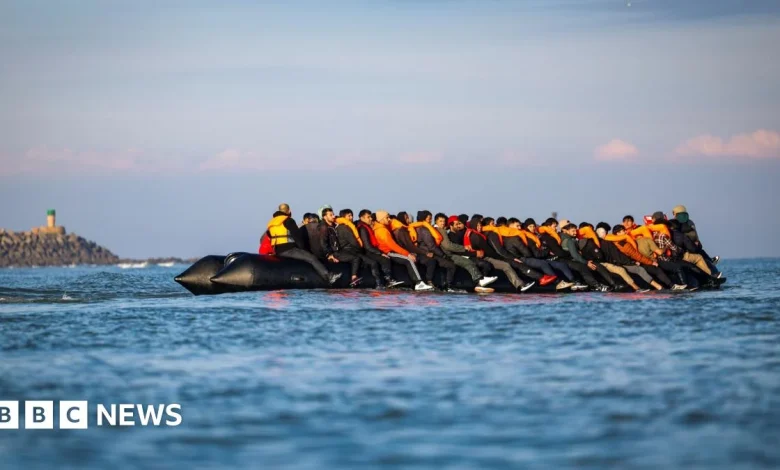Mahmood expected to axe permanent UK settlement for asylum seekers

And it wasn’t just temporary status for refugees that caught the eyes of her officials.
They also looked at Denmark’s greater restrictions on “family reunion” – when refugees want to bring their spouses, partners or children to the country.
She believes Denmark’s policies serve as a disincentive for people to seek asylum in the first place and is impressed that successful claims are at a 40-year low.
And she believes that what she sees as the current generosity of the UK system is acting as a magnet, and driving small boat crossings.
But it’s not uncontroversial.
Four years ago the Danish government planned to return around 200 refugees to Syria even while the civil war raged – because it said some parts of Damascus were safe.
She will certainly face opposition from some in Labour’s ranks.
When it was revealed that Denmark was being used as a model for tougher rules in the UK, the Labour MP Clive Lewis told the BBC that progressive voters might migrate to more left-wing parties such as the Greens as a result.
And that aspects of the Danish system echo the “talking points of the far right”.
Nottingham MP Nadia Whittome – also on the left of the Labour party – said following in Denmark’s path would be a “dead end – morally, politically and electorally”.
But I understand Shabana Mahmood will issue a warning to her sceptical colleagues.
She will suggest that while some of her reforms may seem immoderate, the alternative could be a further rise in support for Reform UK.
She is expected to say: ‘”If you don’t like this, you won’t like what follows me.”
The home secretary believes Denmark is an example to emulate because its asylum policy – summed up as “less in, more out” – has been achieved while remaining inside the European Convention on Human Rights.
But both she and her opposite number in Denmark – Rasmus Stokland – want to see reforms and to rein in “activist judges” who might give to much emphasis to the ECHR’s provisions on rights to a family life when deciding on deportation cases.
She is expected to address this in her statement to Parliament on Monday.
Both Reform UK and the Conservatives argue that it would be more effective to leave the Convention entirely.
And rather than giving refugees temporary status, Reform UK say they would detain and deport cross-channel arrivals.
The Conservatives argue that the boats cannot be stopped unless a Rwanda-style scheme is restored.
They see this as a deterrent while the Labour government denounced it as a gimmick.
The home secretary is likely to acknowledge on Monday that the crisis at the UK’s borders is “out of control”.
Simply adopting new policies is unlikely in itself to restore the trust of voters tempted by Nigel Farage.
But if the home secretary’s stance actually reduces numbers, she will hope her party will be granted permission to be heard, not just on migration, but on other policies too.




